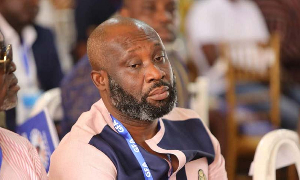.... To Youth Development In Ghana
Introduction
After many years of hue and cry from the young people of Ghana, government has eventually launched a National Youth Policy. It is as if we are back to square one because the launching of a National Youth Policy is not new. In July 1999, the then NDC government launched a National Youth Policy that was never implemented by the NPP government. After eight long years of governance the NPP government in 2008 approved a much more improved National Youth Policy with an implementation plan. The NDC returned in 2009 and it has taken almost two years to launch the policy. Major stakeholders including youth groups who were consulted when the policy was drafted had not seen the document that was launched hence the controversy over the policy.
The undue politicization of the National Youth Policy is a clear manifestation of lack of political will to promote youth development. This is because during the Rawlings led NDC regime Parliament passed 137 laws while under the Kufuor led NPP government 184 laws were passed by Parliament some of which were under certificates of urgency yet no urgency was attached to the need to have a National Youth Policy that goes through a less laborious process.
What is the importance of a National Youth Policy?
There are many people who argue that there is no need for a youth policy and that every young person should just go to school and that is enough to the develop them. This argument is absolutely defective. Youth issues cut across various sectors of the economy such as education, governance, human rights, employment, conflict, health among others. It is therefore important to create a sustainable environment to equip them with knowledge, skills, attitudes, values and resources required to enable them contribute to the economic, social and cultural advancement of themselves, their families and the nation at large. Young people need to be adequately prepared to face the challenges of adolescence and adulthood through a series of activities and experiences which help them to become socially, morally, emotionally, physically and cognitively competent.
According to the 2000 Housing and Population Census the youth of Ghana constitute 33 percent of a heterogeneous segment of Ghana’s population with a growth rate of 2.7%. Even though young people are faced with numerous problems such as unemployment, limited and inadequate education and training opportunities, vulnerability to diseases, involvement in violent conflict and crime; inadequate opportunities to engage in decision-making on issues that affect them among others, there was no clear policy on youth development. According to the 2008 Prisons Service report 80% of those in jail fall between the ages of 18 and 40 years and this is simply unacceptable.
Numerous programmes and projects are organised by various Ministries, Departments and Agencies, Non-Governmental Organisations, Civil Society Organisations, Youth Groups as well as Faith-based organisations tailored at meeting the needs of the youth.Unfortunately, due to the absence of policy there is no clear framework within which these organisations work, share ideas and experiences and measure progress hence there is no proper coordination of activities resulting in duplication of efforts with little impact on youth development.
In addition governments over the years have adopted knee-jerk responses to youth concerns because there is no systematic plan to promote youth development. We waited until the youth unemployment situation was getting out of hand before the National Youth Employment Programme was developed albeit with many challenges. Again when internet fraud got to its zenith we resorted to talk shows and seminars to address that canker. Meanwhile, there are remote causes of these phenomena which must be tackled.
A National Youth Policy will therefore end the knee-jerk responses and piece-meal approaches of government and other stakeholders in addressing youth development challenges. It will enable government to collaborate with the youth and other stakeholders to implement appropriate interventions and policies for youth development.
Ultimately, the policy will provide guidelines for all stakeholders involved in the implementation of programmes and projects for youth development.
The way forward
Interestingly due to the failure of government to make the approved policy available to youth groups that were involved in revising the policy before it was launched, there are controversies over the policy where people are referring to it as an NDC Youth Policy.
First of all, there is the need to resolve this situation by getting the youth from different political persuasions and groups to appreciate and take ownership of the policy as a national youth policy.
The point must be made that it is not enough to profess that we have a National Youth Policy and sit back. The most critical issue is implementation. Indeed it is the implementation that will lead to the realization of the aspirations of the youth of this country. As a matter of utmost importance, there should be a deliberate strategy to communicate the policy by making it readily available to all stakeholders in various forms (soft or hard copies). The team in charge of implementation must get all stakeholders to appreciate their respective roles in implementing the policy in order to execute them effectively.
Monitoring and evaluation is critical as it will provide important feedback on progress as well as challenges and proposals on how such challenges could be addressed. The implementation body could produce an Annual National Youth Development Report which will serve as a progress report on the implementation of the policy.
The implementation of the policy by government is only a moral obligation and from our experiences there is the need to insulate the policy from politicization. One way by which we can do this is by ensuring that government introduces the policy to Parliament for ratification. This way parliament will assist in ensuring that resources are made available for the implementation of the policy.
Ultimately, there is the need for a youth law which will establish an independent Youth Commission with limited influence by politicians and a more improved budgetary allocation to promote youth development. It is refreshing to observe that government has given a clear indication in paragraph 467 of the 2010 budget that “Government will submit the Draft National Youth Bill to Cabinet and then to Parliament to be passed into the National Youth law to replace the NRCD 241 of 1974”.
As young people we need to remain united and work together to support and hold government accountable to implement the policy since the challenges we face have no regard for our political leanings.
Prosper Hoetu
Executive Director
Youth Network for Human Rights & Democracy (you-net)
Member, Steering Committee, National Youth Policy Coalition
E-mail: pyhoetu@gmail.com
Opinions of Sunday, 15 August 2010
Columnist: Hoetu, Prosper














